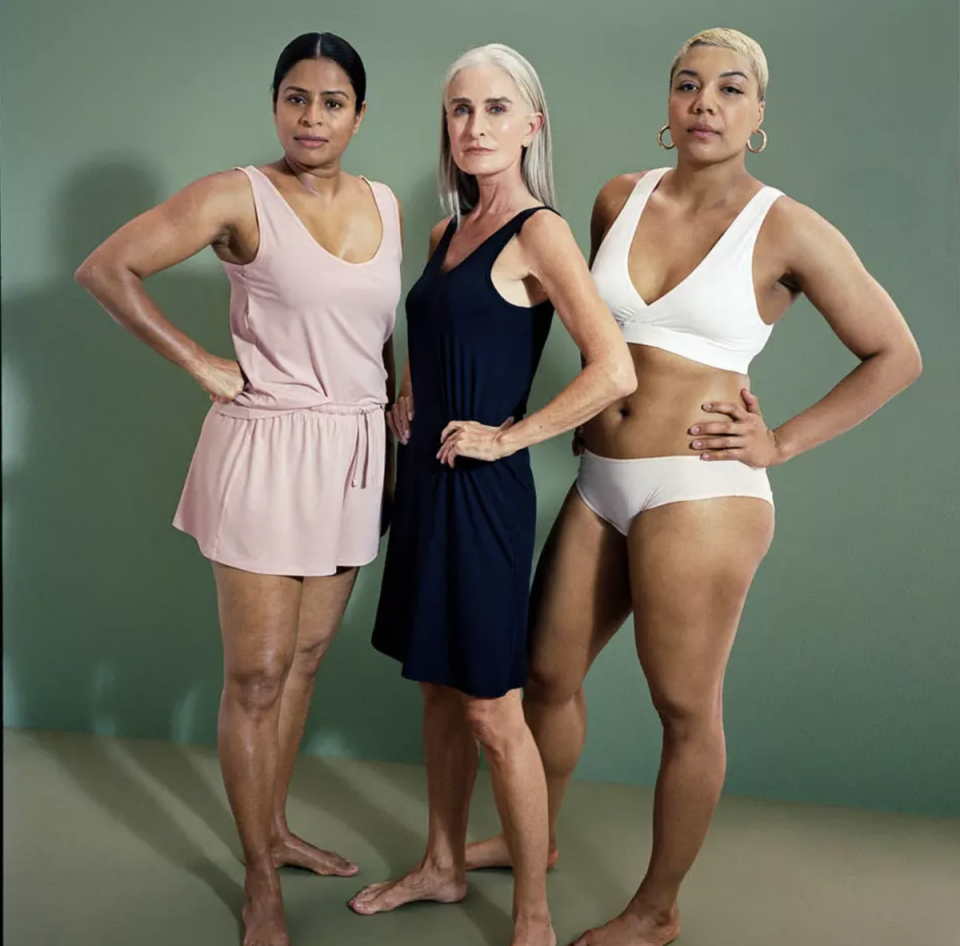Primark launches new menopause clothing range with cooling technology

Primark has launched its first ever range of clothing designed to help people going through the menopause.
The new collection includes nightwear, underwear and base layers designed to help with symptoms associated with the menopause, such as hot flushes.
Made from recycled nylon and recycled polyester, the lightweight products incorporate anti-flush technology, with cooling yarn, odour and temperature control, in a bid to help the wearer feel as comfortable as possible.
The 14-item range will also be accompanied by social media and in-store marketing to provide Primark customers with more information on the menopause.
Prices begin at £7 for anti-chafing shorts, mini and high-waist briefs, running to £12 for bralettes and camis.
Nightdresses, leggings, pyjamas, t-shirts and a slip dress are also available for purchase.
Ann-Marie Cregan, trading director at Primark said: “We are aware of the many different challenges the menopause can present to women.
“As part of our overall ambition to support women through all of their life stages, and tackle everyday taboos, we recognised that specialist products weren’t accessible or affordable to everyone and we wanted to change this.”

She continued: “This range has been two years in development and testing to ensure we created innovative and novel products designed specifically to relieve one of the most frequent symptoms associated with menopause: hot flushes.”
The menopause occurs when periods stop due to lower hormone levels, something that usually happens between the ages of 45 and 55.
Perimenopause is when you have symptoms before your periods have stopped. These can include anxiety, mood swings, brain fog, hot flushes and irregular periods.
You reach menopause when you have not had a period for 12 months.
In a landmark survey published in May this year, it was revealed that one in 10 people who have worked while going through the menopause have quit their job due to symptoms associated with the natural occurence.
Fawcett Society chief executive Jemima Olchawski said it was a “national scandal” that menopausal women are facing “unnecessary misery”.
She urged the government to require employers to have menopause action plans, create a route into menopause healthcare and ensure GPs are adequately trained to spot symptoms.
“For too long, menopause has been shrouded in stigma, we need to break the culture of silence and ensure menopausal women are treated with the dignity and support they deserve instead of being expected to just get on with it,” she said.

